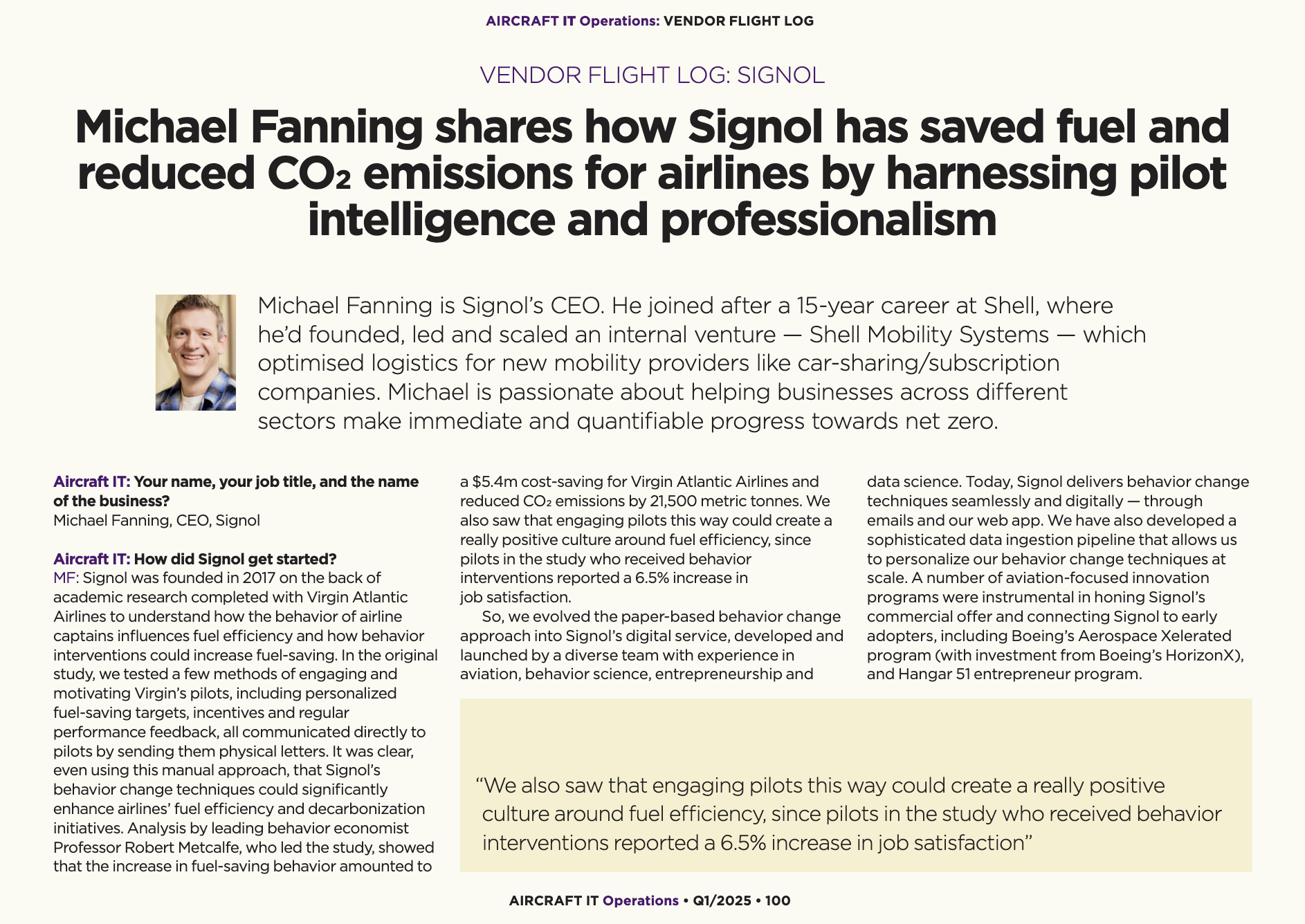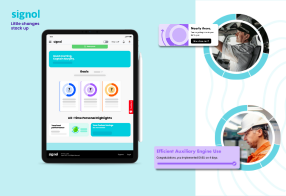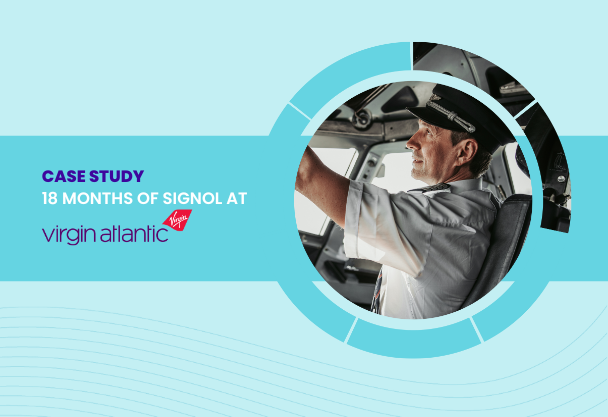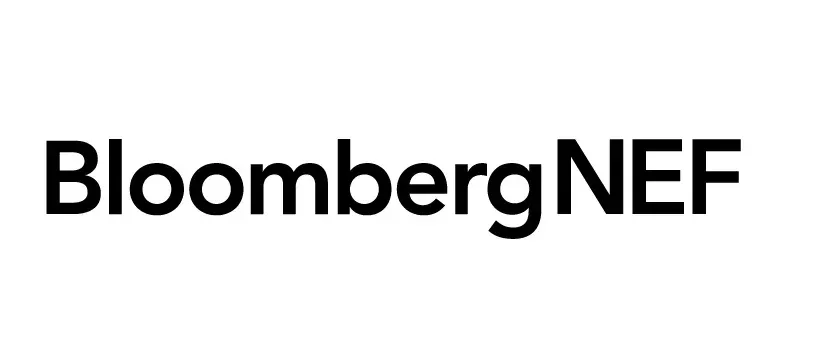
Blog
The Complexity of Behaviour Change

Press
Aircraft IT Ops: Vendor Flight Log - An interview with Michael Fanning (CEO)

Blog
Changing the behaviour of highly trained and experienced professionals in aviation and maritime

Blog
What influences whether airline pilots and seafarers save fuel?

News
Every action counts: Ultranav starts trial with behaviour change service Signol to minimise CO2 emissions

Blog
Human behaviour: the overlooked factor in improving operational efficiency

News
Christiania Shipping reduces fuel bill and CO2 emissions in months using behavioural science

Press
Save fuel or have a coffee? Why motivated seafarers can help cut shipping emissions

News
Signol’s six-month trial with Cargill shows significant opportunity for fuel-saving

News
Sustainability startup Signol raises £2.5m to harness the human factor in emissions-intensive industries

News
Signol to showcase Virgin Atlantic success at Miami aviation conference

Case Study
Signol's pilot-first behavioural science solution saved Virgin Atlantic 39.5k of CO2 emissions in 18 months
Featured in






